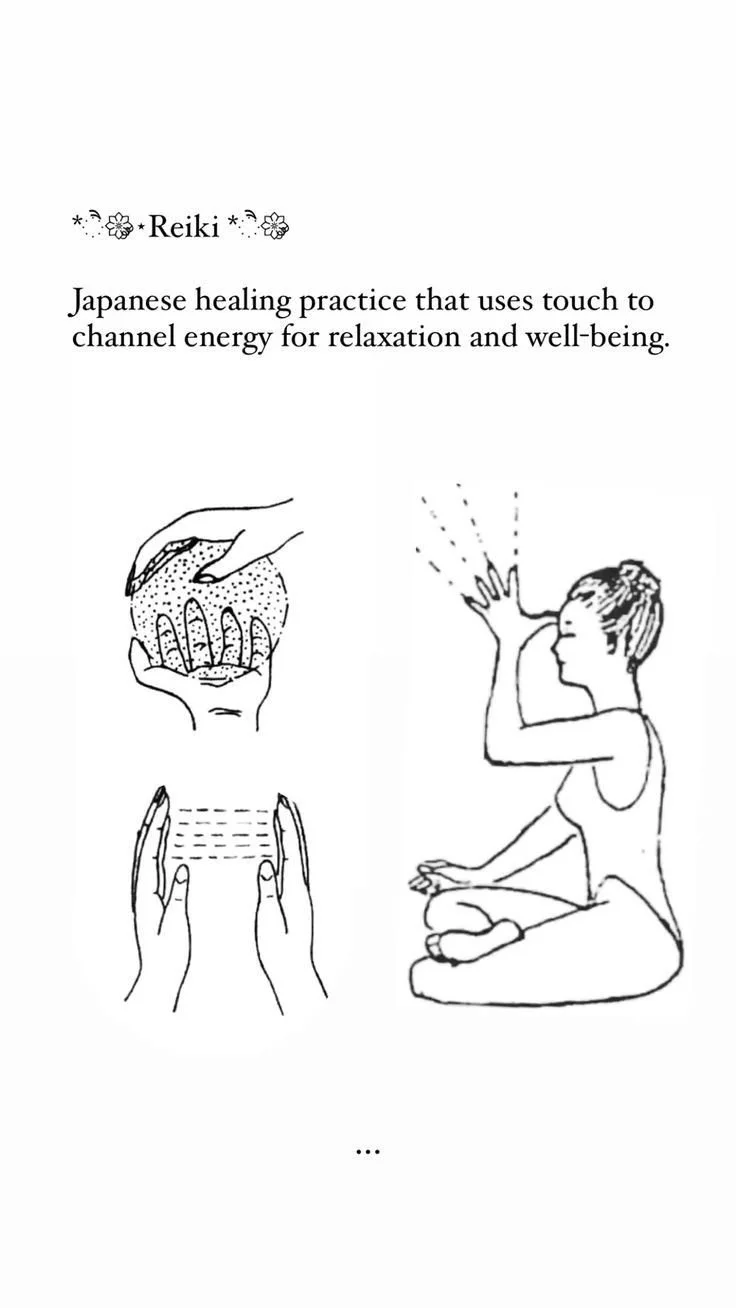Reiki and Depth Psychology
In recent years, Reiki has gained popularity, often being misunderstood or dismissed as “woo-woo.” Yet, Reiki’s potential healing properties go beyond simple mysticism, offering a form of non-touch therapy that addresses mental, emotional, and physical pain. As a holistic practice, Reiki operates on channeling spiritually guided life force energy, supporting relaxation and general well-being (Dyer, Baldwin, & Rand, 2019). The synergy between Reiki and Depth psychology is particularly relevant in today’s context as individuals seek holistic approaches to understanding and addressing their emotional lives. Rooted in exploring the unconscious, Depth psychology aims to unlock deeper aspects of the psyche. When combined with Reiki’s energy-focused principles, practitioners can facilitate profound self-discovery and healing.
Reiki’s Principles and Psychological Relevance
Reiki is fundamentally a spiritually guided energy practice, founded in the early 20th century by Mikao Usui in Japan. Reiki, translated as “spiritually guided life force energy,” is a complementary practice rather than an alternative to conventional medicine, enhancing therapeutic techniques (Miles & True, 2003). Its methodology involves either a light touch or intentional energy placement, creating a deeply relaxing experience (McManus, 2017). Lacking religious affiliations, Reiki’s inclusive approach has allowed it to become a complementary practice in wellness (McManus, 2017). In sessions, Reiki can often prompt the emergence of repressed memories or emotions, resonating with Depth psychology’s goals of surfacing the unconscious for healing and self-acceptance.
Practitioners often utilize visualizations and intentions to encourage clients to engage with shadow aspects, or those parts of the self often repressed or denied (Miles & True, 2003). Through techniques such as hands-on energy work, practitioners aim to provide safe spaces where clients may access these aspects, promoting healing, personal growth, and an integrated sense of self (Dyer et al., 2019).
Depth Psychology and Self-Understanding
Depth psychology, especially through Carl Jung’s theories, provides a framework for exploring the unconscious and facilitating self-awareness. Focusing on concepts like the shadow, archetypes, and individuation, Depth psychology seeks to uncover the unseen motivations and unresolved traumas within an individual’s psyche. When applied to Reiki, these principles offer a complementary lens, enhancing the energetic practice by allowing clients to process buried emotions and experiences.
For example, Jung’s concept of the shadow represents repressed or unacknowledged aspects of the self. In Reiki sessions, the subtle energies engaged allow for non-verbal, intuitive processing of these emotions, which can otherwise be challenging to articulate. By focusing on the energetic blockages that correspond to repressed psychological material, Reiki facilitates a type of shadow work, enabling clients to encounter and integrate parts of themselves that may otherwise remain hidden.
Integrating Reiki with Depth Psychology
Reiki’s ability to aid the unconscious mind mirrors Depth psychology’s work in unearthing hidden layers of the self. By facilitating relaxation, Reiki allows for deep emotional release and self-reflection, which is essential for self-exploration. For instance, in my own experiences with Reiki, I’ve accessed unresolved feelings in a way that traditional talk therapy alone didn’t achieve. Sessions offer an embodied wisdom that words alone might struggle to convey, fostering insight and healing as clients engage with energies and emotions unique to their experiences.
The process also connects clients with inner archetypes, such as the inner child or higher self. These archetypes represent foundational aspects of the psyche, contributing to self-awareness and personal insight. My sessions often bring my younger and higher selves into awareness, nurturing self-compassion and providing a safe space for healing complex emotions. The gentle energy of Reiki thus enables individuals to explore their emotional landscapes in ways that are safe, intuitive, and often deeply healing.
Shadow Work and Emotional Safety
Shadowwork has become popularized, with journals and videos encouraging self-exploration. However, working through these aspects alone can be challenging, sometimes even unsafe without support. Reiki offers a safer medium for this work by promoting an environment of relaxation and emotional safety, particularly valuable when exploring the intricacies of shadow material. Emotional releases are less inhibited, allowing clients to process complex and layered emotions, often held as tension within the body.
Case Studies and Personal Experiences
Historical case studies illustrate Reiki’s transformative potential, with individuals like Mrs. Hawayo Takata, who introduced Reiki to the West. Her journey, beginning with treatments in 1936, underscores how Reiki can catalyze healing and transcend cultural boundaries (Miles & True, 2003). In addition, personal anecdotes shed light on how Reiki can facilitate deeper self-understanding. Personally, Reiki has been instrumental in processing trauma and has even connected me with my ancestral heritage, amplifying my sense of identity. The practice allows for self-exploration and the release of tension that complements talk therapy by engaging unconscious material.
Implications for Personal Growth and Depth Psychology
Reiki sessions, particularly when coupled with Depth psychology, encourage profound emotional release, enabling a more holistic understanding of oneself. This partnership allows for an exploration of the psyche that links physical sensations and emotional releases with psychological insights. Virtual Reiki sessions also create accessibility, enabling individuals to heal within the comfort of familiar spaces. Despite the promising benefits, the integration of Reiki into therapeutic practices faces challenges, including skepticism within the medical community (American Psychological Association, 2018).
In summary, Reiki’s appeal lies in its capacity to complement Depth psychological principles, offering a non-verbal, intuitive pathway for individuals to engage with the unconscious and foster self-understanding. Integrating Reiki into therapeutic contexts has the potential to enhance personal growth, facilitating a connection with one’s inner landscape in ways that both respect and illuminate the depths of the psyche. This holistic combination offers an enriched approach to personal transformation, fostering a balanced and profound journey toward self-awareness and healing.
References:
Dyer, B., Baldwin, A., & Rand, W. (2019). Reiki and Healing: History and Applications.
McManus, P. (2017). Reiki as a Complementary Practice. Journal of Holistic Nursing, 34(4), 297-301.
Miles, P., & True, G. (2003). Reiki: Practices, Applications, and the Healthcare Integration. Journal of Alternative and Complementary Medicine, 9(1), 65-72.
American Psychological Association. (2018). Reiki and the Place of Alternative Therapies in Psychology. APA Journal, 56(3), 125-137.

